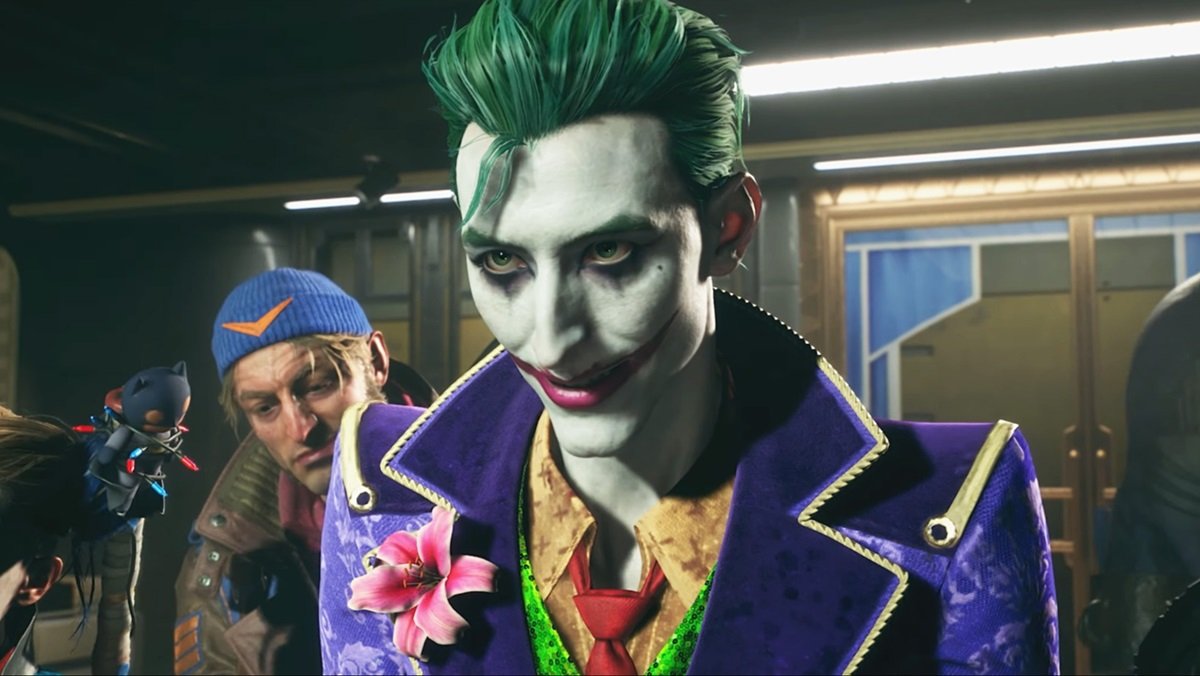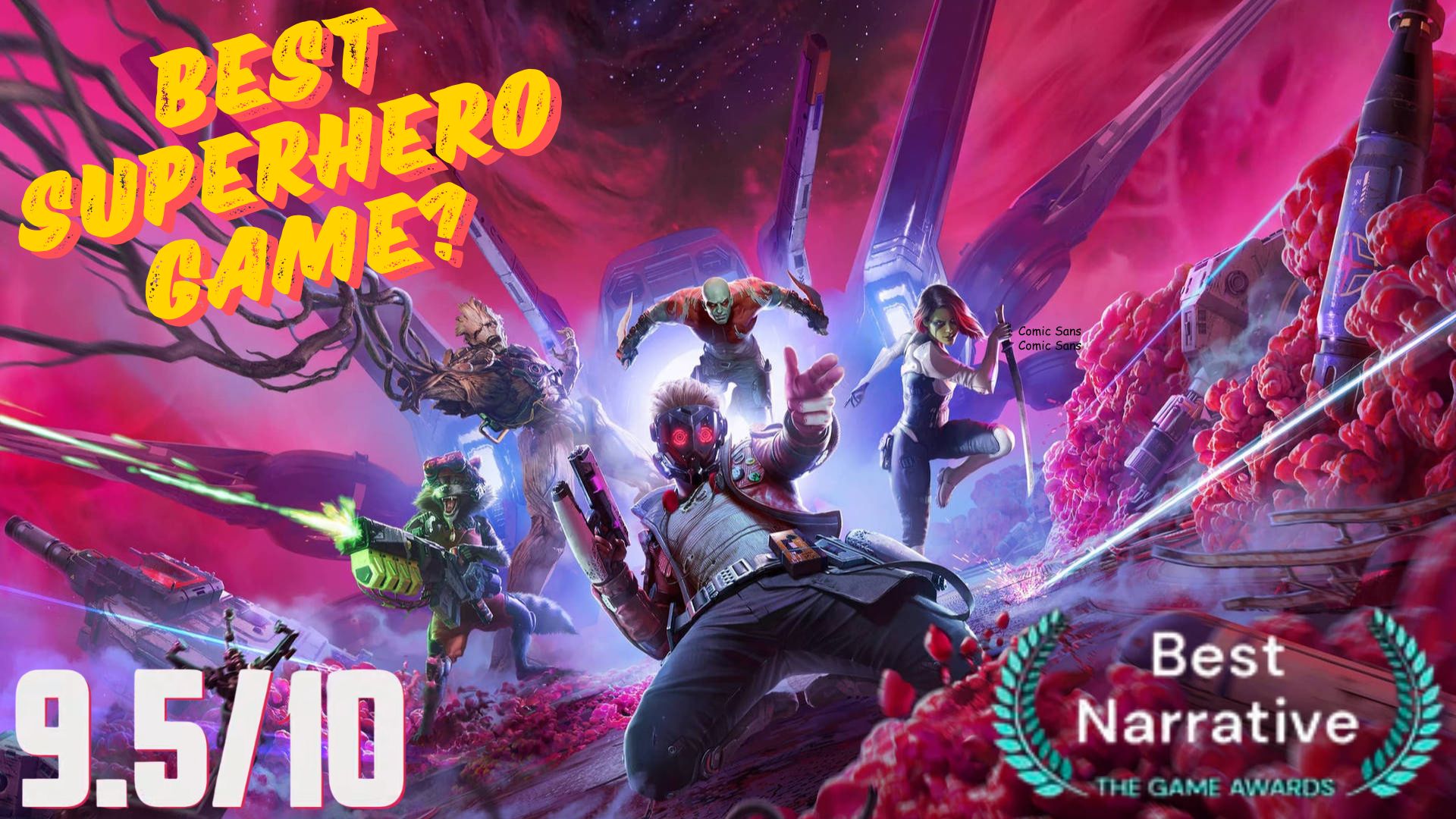- Superhero team-up games have struggled, with Suicide Squad: Kill the Justice League and Marvel’s Avengers failing due to poor execution and live-service models.
- Guardians of the Galaxy succeeded by focusing on traditional gameplay and strong narrative.
- A single-player approach with strategic character teamwork made the game thrive where others failed.
Everyone likes it when their favourite superheroes come together for a single purpose. Whether it’s the Avengers or the Justice League, these team-ups have found incredible success in all mediums, excluding gaming.
Despite being ambitious projects, Suicide Squad: Kill The Justice League and Marvel’s Avengers failed terribly because of their poor execution. Is there too much going on with these team-up superheroes to be successful in a video game?
This claim is entirely false; however, Guardians of the Galaxy, another Marvel team-up, proves that Superhero team-up games can succeed in the video game realm, considering they aren’t overly complicated and focused more on traditional gameplay and storytelling.
Why It Matters: It’s hard for even a normal superhero-based game to succeed in a video game outside of the comics. Considering their larger scale, this makes team-up superhero games even tougher to be successful.
Where SSKTJL And Marvel’s Avengers Lacked

It’s no surprise that comic book video games suffer from a lack of creativity, and it’s surprising because every source material is out there. I’m not a developer, but even I can tell that their main job is to pick the best one, and everything comes into place after all.
If there’s one thing that Marvel’s Avengers and SSKTJL have in common, it’s that they were both utterly disappointing and commercial failures. More than that, both were based on a live-service model, the latter of which did not need to be.
Being a live-service model itself is pretty much a gamble. The lack of content can cause a game to die before it even has a chance to succeed. Spending $70 for a base AAA game and all these microtransactions can be overwhelming, doubled by the fact that these games were also underwhelming in almost every other department.
Moreover, these games are supposed to be much larger, especially when they deal with some of the biggest icons in fiction. All characters, whether in Marvel’s Avengers or SSKTJL, lacked depth in their characters, mostly during combat.
SSKTJL is even worse, and playing it made me feel better about Marvel’s Avengers. Every character is just a reskin, and the game plays out almost exactly the same since it is more of a looter shooter.
Nothing about these games made me feel like I was playing as a superhero. Even while playing the Arkham series as Batman, a human dressed in a bat costume, I felt much more powerful than Thor from Marvel’s Avengers.
Guardians of the Galaxy Masters: What SSKTJL and Marvel’s Avengers Couldn’t

I don’t see how developers justify playing safe with a game and not innovating much when they base it on a live service model and load it with many microtransaction elements.
These games aren’t even good enough to justify all of this bloat and the higher price tag that AAA games have nowadays. Eidos Montreal’s Guardians of the Galaxy does what other team-up superhero games failed to do. It picks up the best source material from comics and inspiration from Gunn’s movies.
The game is also strictly single-player, aiming to deliver a great narrative and build the story within its confined wall rather than having too much going on. The developers avoided their past mistakes with Marvel’s Avengers, which involved too much going on at once and an inability to focus on a single thing.
This is why Star-Lord is the only playable character out of the Guardians. As Star-Lord, players rely on teamwork to beat the game and can command each team member with unique abilities that complement each other.
Being a team leader, Star-Lord’s decisions impact the game’s branching storyline and the team’s performance immensely. As a result, each member’s powers truly shine, and players feel as if they’re part of a team.
Superhero games aren’t going away anytime soon, and we’ll probably get a Justice League or Avengers game soon enough. Developers should really take inspiration from Eidos Montreal’s execution of the game and how they made each character, whether an NPC, important to the main storyline while not missing out on much of them.
Thank you! Please share your positive feedback. 🔋
How could we improve this post? Please Help us. 😔
[Staff Writer]
Shaheer is currently pursuing a Business degree while also working as a part-time Content Writer. With his deep passion for both writing and video games, he has seamlessly transitioned into a role as a Journalist. Over the past two years, Shaheer has contributed as a freelancer to various websites and landed positions on acclaimed platforms like Gamerant. Currently, his role at Tech4gamers is as a Features Writer, but he also covers News occasionally. Shaheer’s favorite gaming franchises are Assassin’s Creed and the God of War series.
Get In Touch: shaheerzahid03@gmail.com




